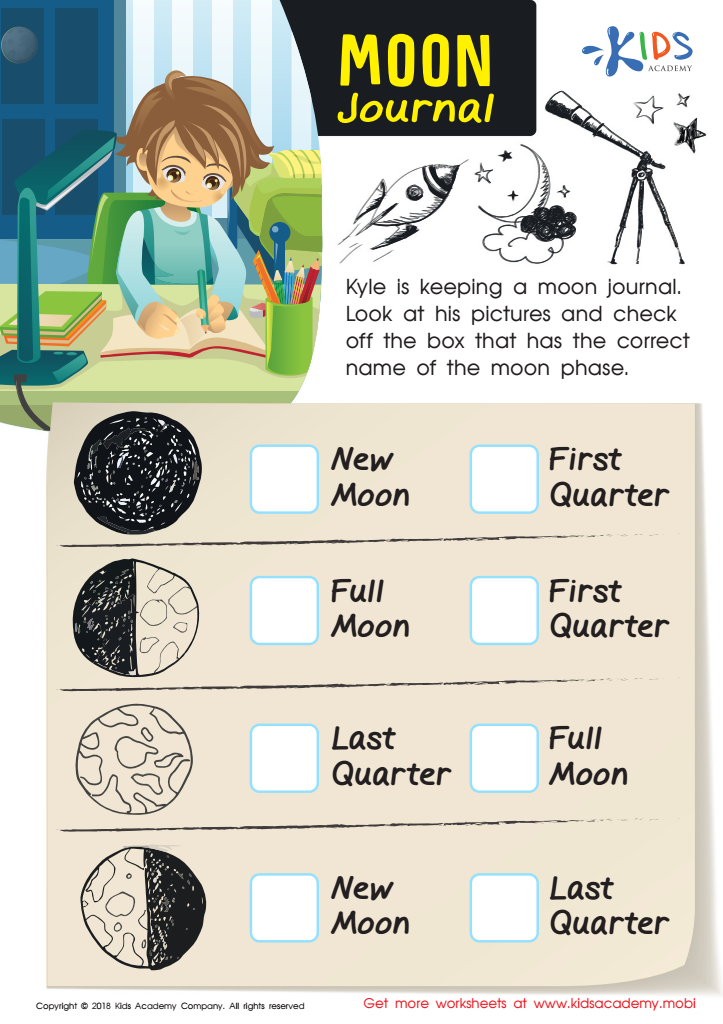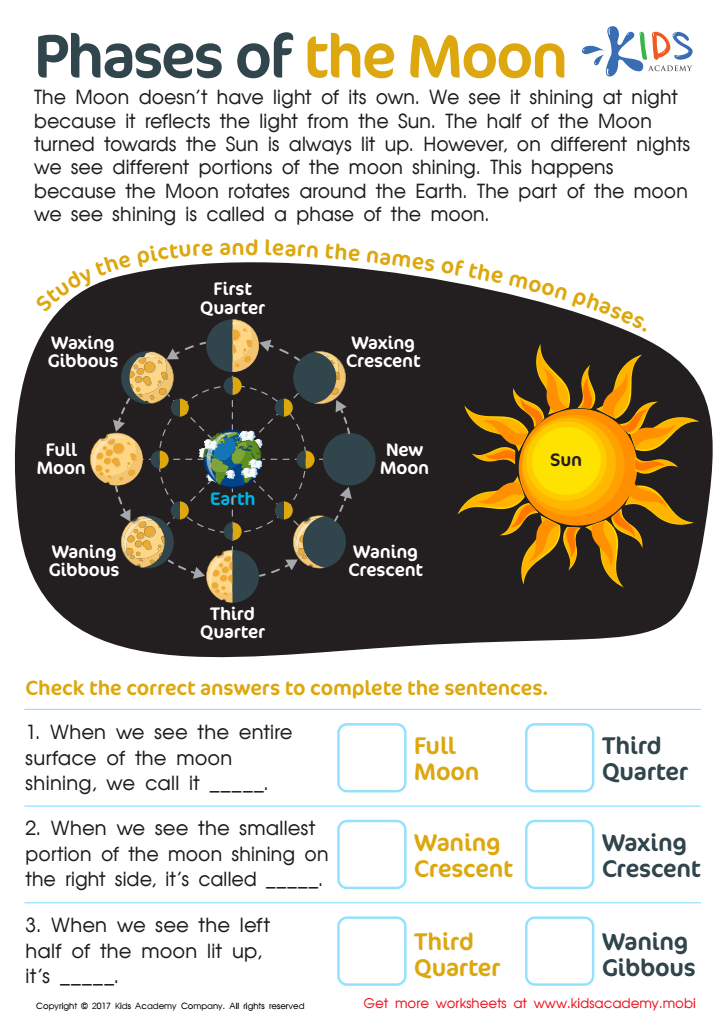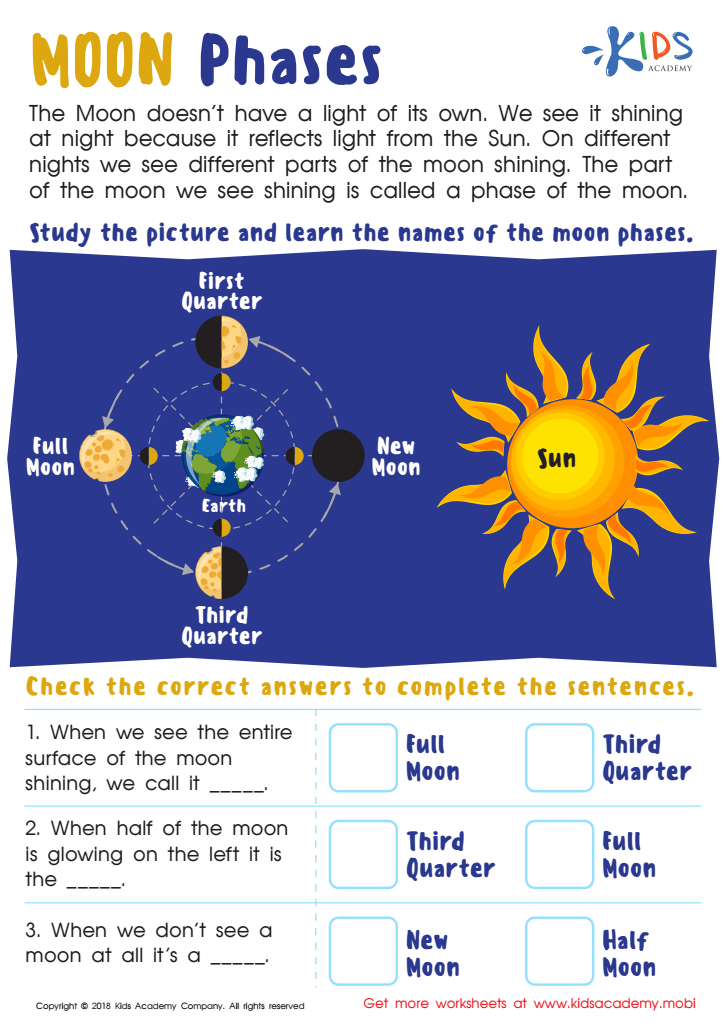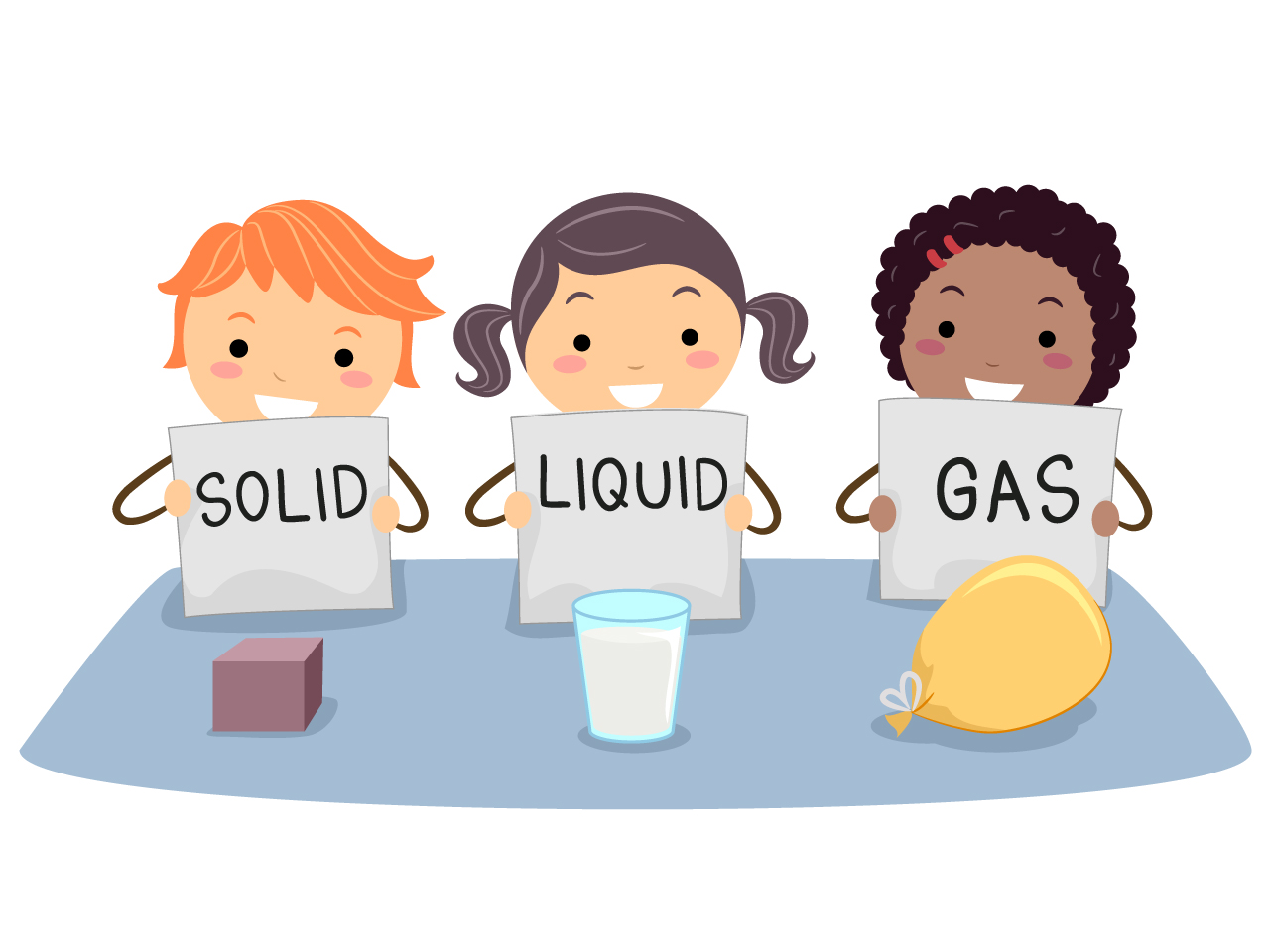Understanding moon phases Space Worksheets for Ages 5-8
3 filtered results
-
From - To
Unlock the mysteries of the moon with our "Understanding Moon Phases" space worksheets tailored for ages 5-8! These engaging resources simplify the complex lunar cycle, making learning fun and accessible for young minds. Through vibrant illustrations and interactive exercises, children will explore each phase of the moon, from new to full and everything in between. Perfect for both classroom use and at-home enrichment, these worksheets foster early scientific curiosity and knowledge. Empower your child's learning journey with our expertly designed tools at Kids Academy, feeding their fascination with the marvels of space!


Moon Journal Worksheet


Phases of The Moon Worksheet


Moon Phases Worksheet
Understanding moon phases is a valuable pursuit for young children, ages 5-8, as it fosters curiosity and a love for learning. Introducing them to moon phases not only satisfies their innate curiosity about the world but also lays a solid foundation for future scientific learning. At this age, learning about the moon’s changes can ignite a passion for space and science, sparking curiosity about our universe.
Parents and teachers can use the moon phases to teach important scientific concepts such as observation, pattern recognition, and the passage of time. Observing how the moon changes nightly engages students in hands-on, experiential learning, reinforcing these skills. It aligns smoothly with basic math concepts, like fractions, when explaining the different phases, promoting mathematical thinking in a practical context.
On top of the educational aspects, discussing moon phases can also deepen a child’s sense of connection to the natural world. It gives them a broader context to understand their place in the universe. Additionally, allowing children to observe the moon's phases can be the catalyst for valuable family bonding time, fostering strong communication skills and encouraging dialogues full of wonder and discovery. Thus, understanding moon phases nurtures both intellectual growth and emotional development.

 Assign to My Students
Assign to My Students















